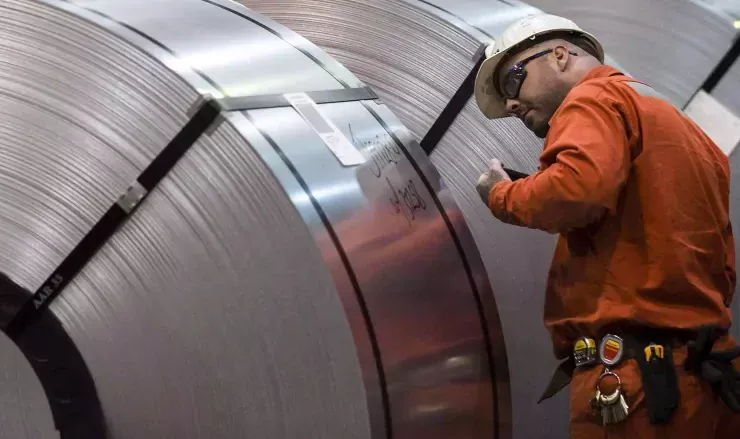In November, prices for hot rolled steel coils in Europe continued to skyrocket. According to the British engineering agency MEPS , in on average, European prices for this type of rolled metal rose by 25%.
European manufacturers are confident that they will be able to maintain the upward trend in prices in December. However, the question of how much their targets are increasing remains open.
Steelworkers are keen to provide increased spot value during the current contract negotiation period. If they manage to achieve a significant increase in quarterly, semi-annual and annual agreements, this will further strengthen the desire of the mills to increase prices. Strong demand from the Chinese market is also likely to have a positive impact on global steel prices in the short term.
Large customers, who traditionally buy steel directly from manufacturers, are forced to purchase part of their steel in service centers, since the volumes accepted by the factories are inadequate to their needs. This leads to a reduction in stocks in the market that will need to be replenished. This replenishment is expected to add weight to the rise in steel prices in the first quarter of 2021.
End user activity has improved significantly over the past few months. The output of products of car manufacturers, manufacturers of household appliances and mechanical engineering is growing. Sales are also expanding in the infrastructure and green energy sectors. This had a significant impact on sales in the metals sector.
After the market recovered from pandemic restrictions, European factories were unable to increase production quickly enough to meet growing demand. The technical problems associated with the reopening of blast furnaces and finishing lines are compounded by staffing problems associated with the ongoing Covid quarantine restrictions.
Cash flow problems prevent some businesses from purchasing large volumes of iron ore due to the current high cost of this raw material. This limits their ability to produce enough material to meet current customer requirements. Because of these additional complexities, it will take longer than usual to normalize the sentence.
The supply of rolled steel from foreign sources remains insufficient. Anti-dumping investigations and the possibility of retroactive duties are deterring European buyers from purchasing Turkish hot rolled coils. Moreover, traders from third countries receive higher prices in other markets. Currently, this further reduces the availability of imported materials. Consequently, in the coming months, the deficit will remain a characteristic feature of the EU market.
Demand from automakers is expected to decline at the start of the new year when the fleet is replenished. The decline in consumer purchasing power due to the economic impact of the pandemic and the end of layoff schemes could also lead to a decline in car sales next year. Consequently, the positive trend in steel prices is projected to end in the second quarter of 2021.




